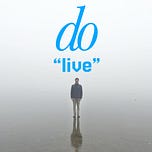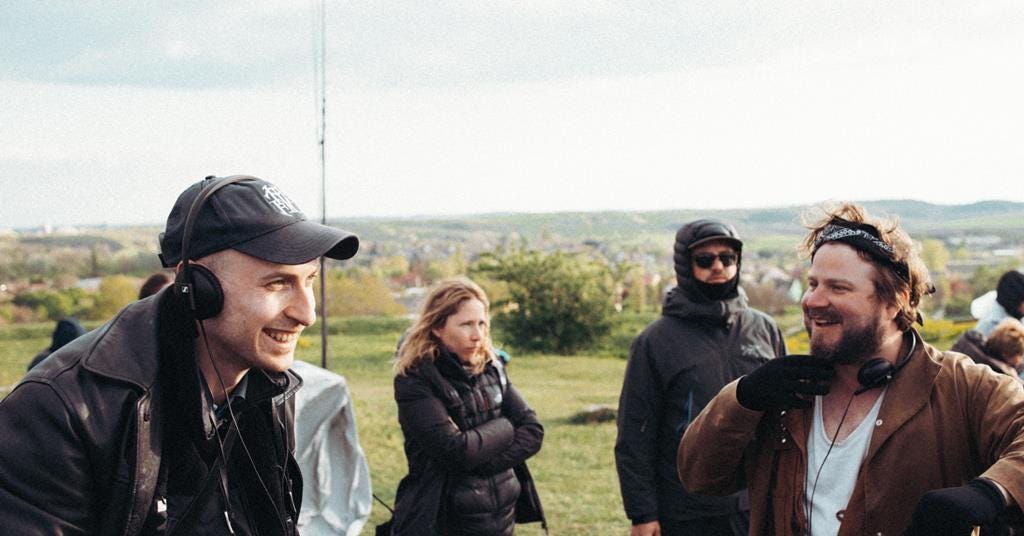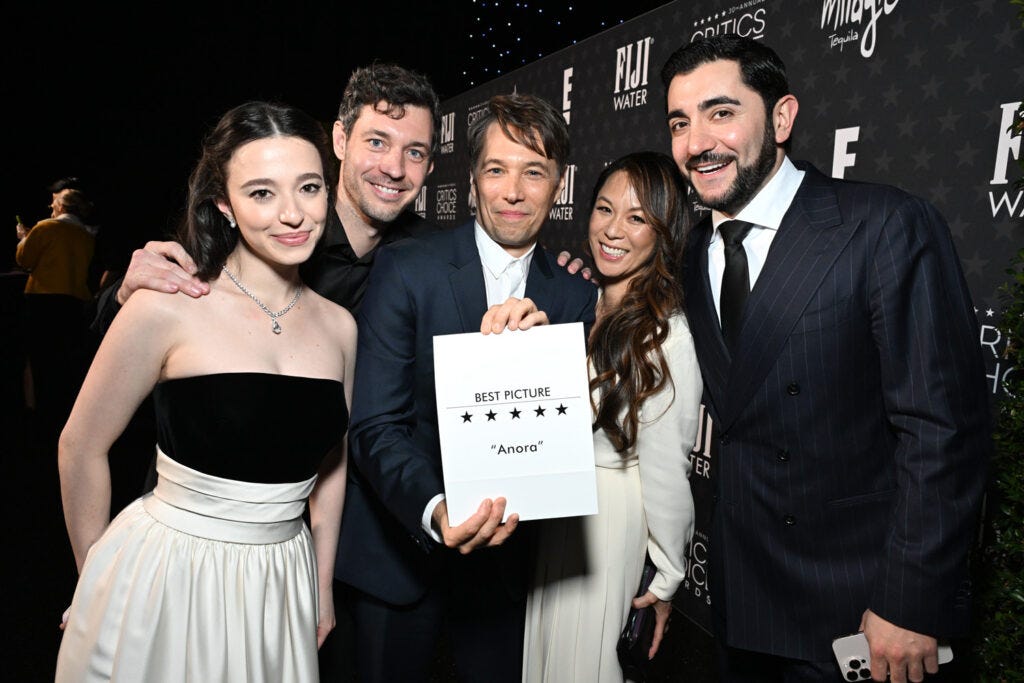Hi guys. I'm back doing another podcast/newsletter today. Been away for a bit since I’ve been working on a screenplay, so focused on writing that. Anyway, hot off of the Oscars, which I attended… remotely… via a friend’s TV: I wanted to talk about a couple of things I've been thinking about based on some of the winners. Just some food for thought.
Who “Composed” The Best Original Score?
The first thing I was thinking about was the best original score, which went to Daniel Blumberg who did The Brutalist score, which was great. I do think it was the most deserving and the best of all of them. I'm just going to talk about the score, I'm not really going to talk about the movie, but something that was super interesting to me about the score is, and I highly recommend listening to this podcast about it where they interviewed Daniel called Score: The Podcast.
Daniel talked a lot about the process of making it and how it was extremely collaborative. Most Hollywood scores are collaborative, because a lot of the ones where you have a big orchestra involved, you have all those players. But his was collaborative in a different way, where he kind of came up in this London experimental scene around this venue called Cafe OTO. There's a lot of great musicians playing avant-garde music that he met around there, and that he looked up to as well.
I think what it seemed like is a lot of the score was basically him writing these these main themes, but then for a lot of the cues thinking about how those themes could be interpreted, and who that he knew might best interpret them, which is really interesting in terms of thinking about who's “composing” the score.
When an orchestra is playing someone's music that they composed, you have all sorts of interpretations. But for the most part, things are pretty set in stone in the way they're written. And this is like a whole other level of writing because a lot of these players were doing improv. based on literally a couple notes. I mean that seems to be why the score was as impactful as it was. It's just that main melody is so repetitive and so simple. And it worked great.
He won the award, but, like he said in his speech, he received it for all the rest of the players and people that contributed to it. It did seem like definitely on a greater level than usual, maybe a greater level than ever before, this kind of collaborative improvisational score was done.
Now, there might be some jazz scores, maybe some that I am not privy to, I have to look into, but I just think it's interesting,
You have someone who's considered the composer and they're writing the music, but if you're really having improvisational players that are extrapolating from what you give them in an even bigger way than just like reading notes on the page and providing your expression of that… it's just another thing to think about.
Filmmaking is such a collaborative process and just even on this level it's collaborative because of how many people are involved just for the score alone. I think it should be celebrated, too. It reminds me of a producer kind of role, too, where you have a record, you bring out a bunch of players in on the record. Steely Dan, the band that I talk about a lot on here, they're bringing in all these sorts of players and they'll be credited on the album sleeves, but the writing goes to the band, even if a solo part was not really written and someone had come up with it on the fly in the studio.
Is a Low Budget, Indie Film Winning Best Best Picture A Good Thing?
I just think it's fun and interesting to think about and this kind of leads me into the next thing, which is that, I think it is a great aspect of independent film and film in general when people are able to bring in their friends on other projects.
I know the budgets were relatively low for these projects. I don't know how much these individual musicians got paid, or when budgets are bigger, it's definitely worth bringing on other people, which I think is a funny thing, because I was also thinking about, Anora, which won Best Picture, was the face of independent film. That movie was representing the independent film scene.
It's funny because I think on one end there's an argument to be had: You know, it's an independent film. You don't have as much budget. You can't afford to pay people. The fact that Sean Baker wrote it, edited it, directed it, produced it, and I think he casted, he puts himself as casting, it makes sense for when you have such small budgets.
But it's something I was thinking about in connecting it with The Brutalist, which ironically, The Brutalist used AI in making it, which is a whole other thing…
But I was just going to say something that's scary about bringing the mentality of independent film into the accepted capitalist machine is just that if they know that great movies can be made for less money, how little money are they going to give people?
I've heard this with some of the streamers that make content in TV that they see these independent filmmakers that are making great movies and then they give those people money to make something. But it's really not all that much money because they know, oh, you can still make something that's decent quality with a pretty low budget.
And so I guess what I was bringing up is that the Daniel Bloomberg situation where he brought on a lot of his friends and peers and people who he looked up to musician-wise is a kind of way to push back against AI, even though that movie used AI [in other ways], but it's just the more humans that you can involve on a project and bring their skills and talents to the to the project, I think the more unique it's going to be. I think it's probably more fulfilling, at least from a process perspective.
I think one could say doing something alone could be fulfilling in the “destination” aspect of how you end up, and you're proud of yourself for doing something all by yourself, but I think from a process perspective it can be more rewarding to work with other people.
So I know those are a lot of ramblings, but I hope people are connecting some of the ideas that I'm saying.
Recap
Just to sort of recap, I think Daniel Bloomberg winning for The Brutalist is amazing. And frankly, it's inspiring me in the fact of working with musicians you like and bringing them on and going to people's houses and basically making a score like you would make a record in a more scrappy kind of way. Sort of how I'm used to making records anyway, which is why I connected to it. I think that's really cool.
And then I think that bringing your friends on is also cool because it pushes back against trying to do everything yourself. I think sometimes you end up trying to automate certain things or making certain things easier for yourself, if you build something by yourself. People go, Oh, they can't hire someone to master the record. Usually it's a money thing. But they can't do that, so they get AI. I understand that trade-off, but I also think, if everyone's doing that, then that's not so good for the art form and for art in general.
And then the third thing is considering Anora is just, I love that independent film is being celebrated, but I just wonder if the embrace by studios and the Oscars in general might be potentially a negative thing. Just because they might give lower budgets and expect people can make things for lower budgets.
Obviously it’s super exciting to have low budget films be so visible, and I’d rather have "10 $10 million dollar movies rather than 1 $100 million dollar movie,” but I also hope that people can get adequately paid on those smaller productions too.
Those are kind of some things I've been thinking about. And I'm really curious if anyone else has any thoughts on this too.















Share this post